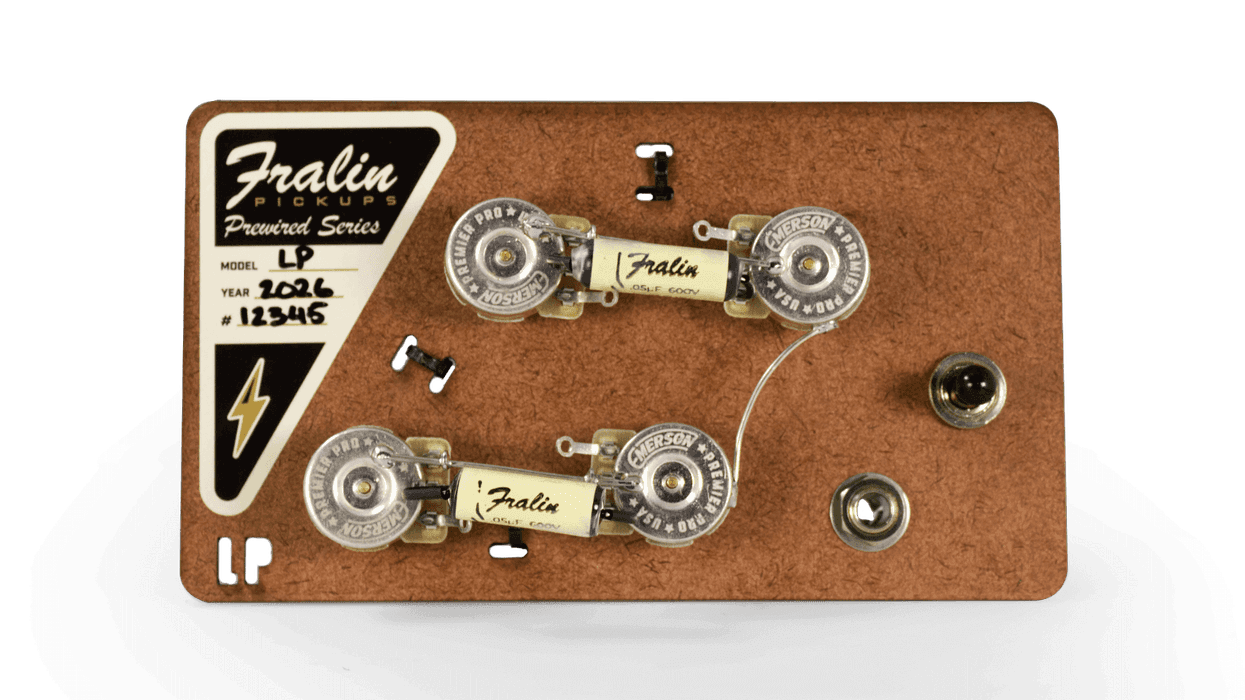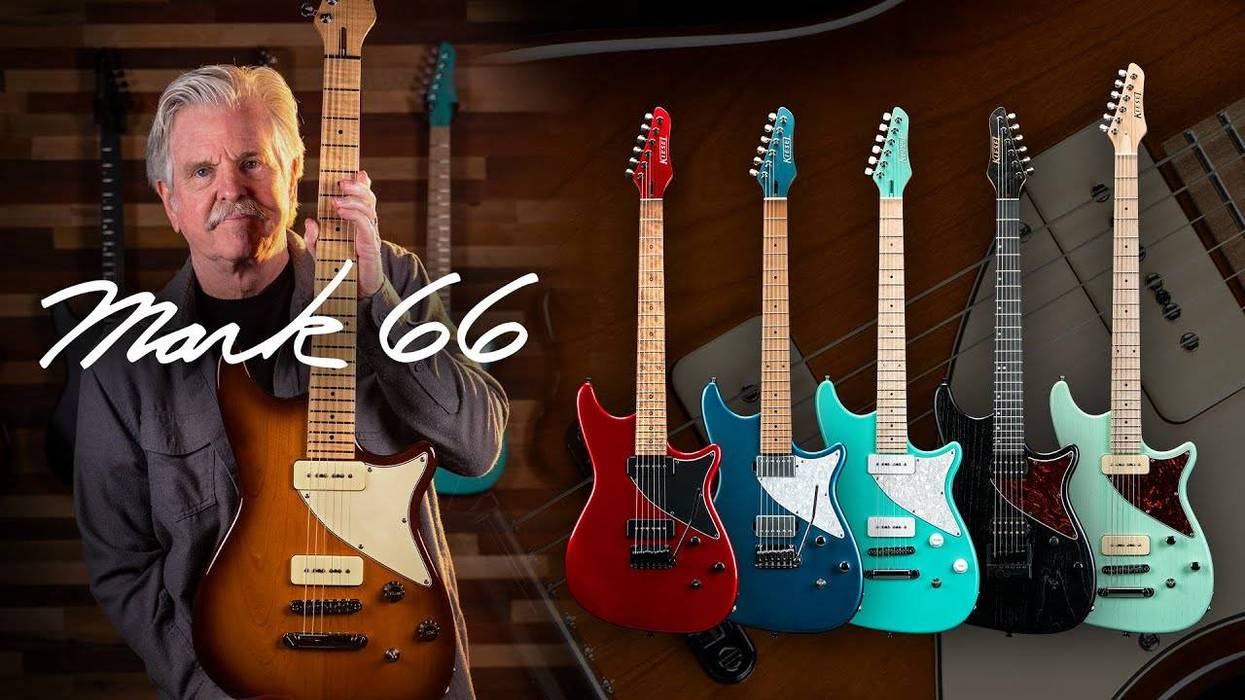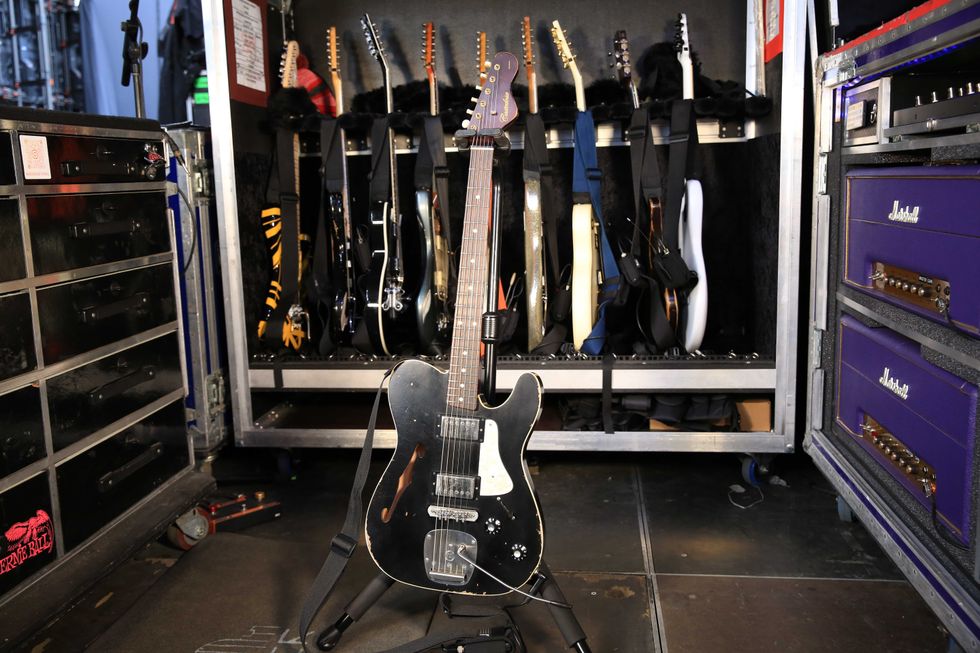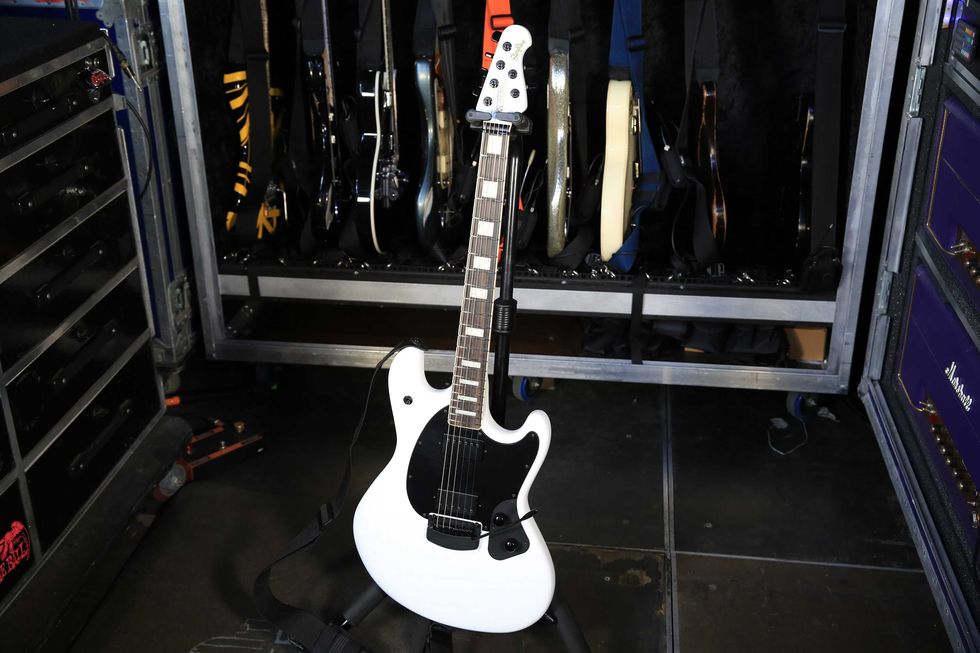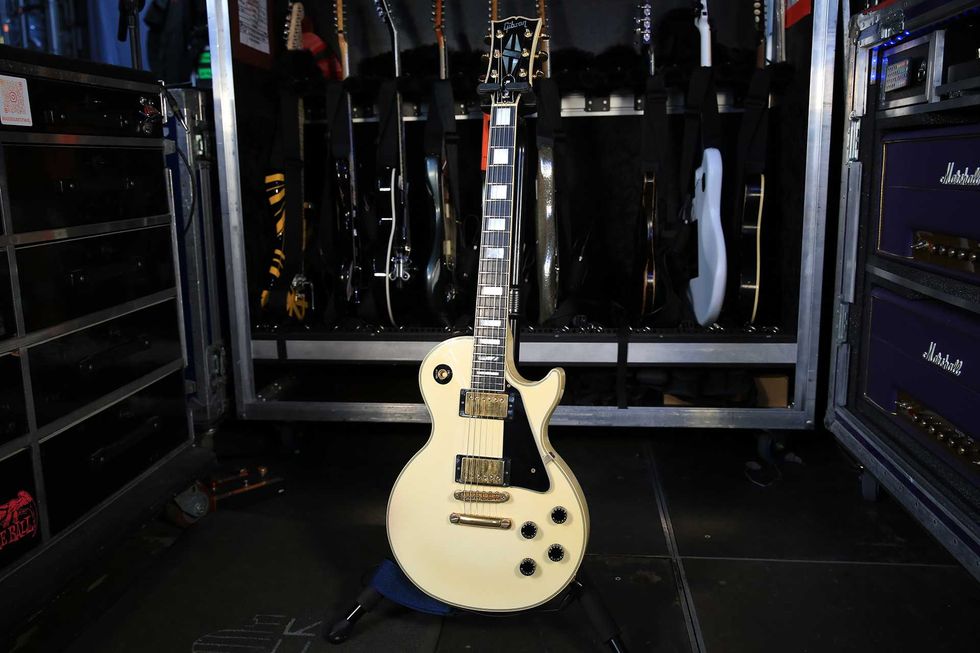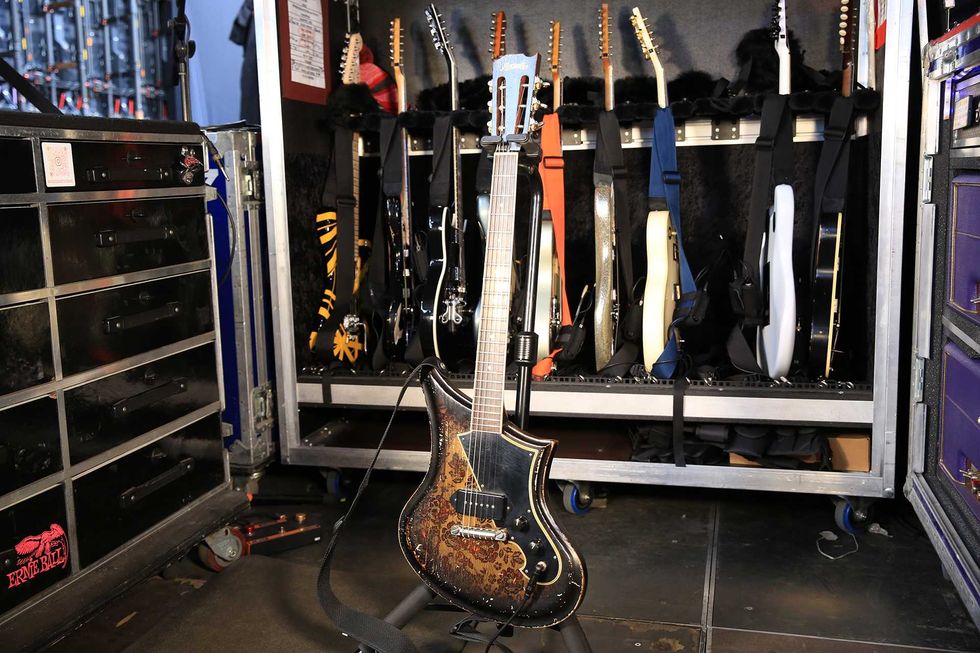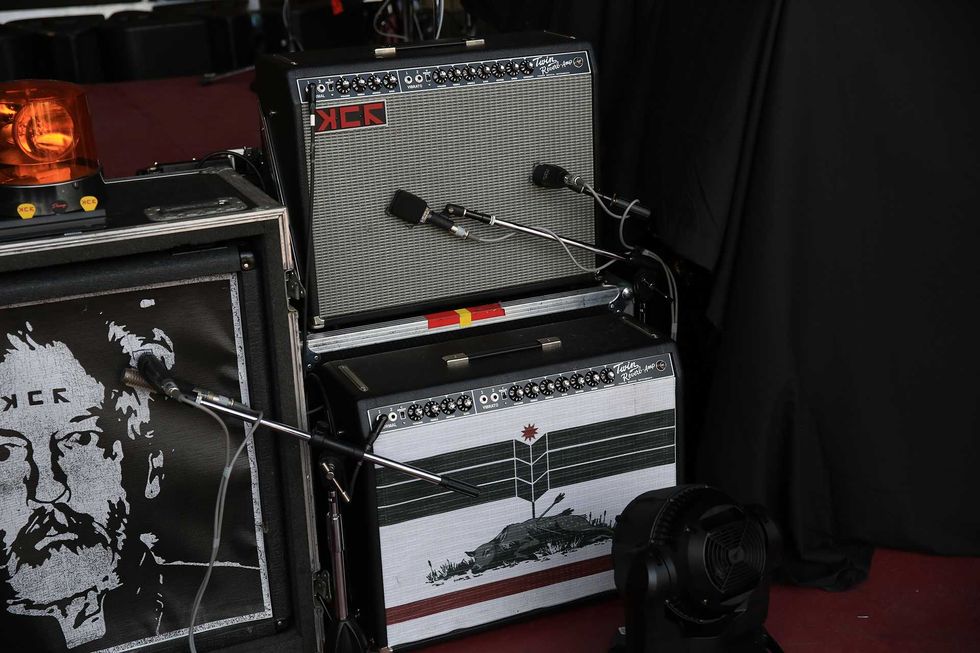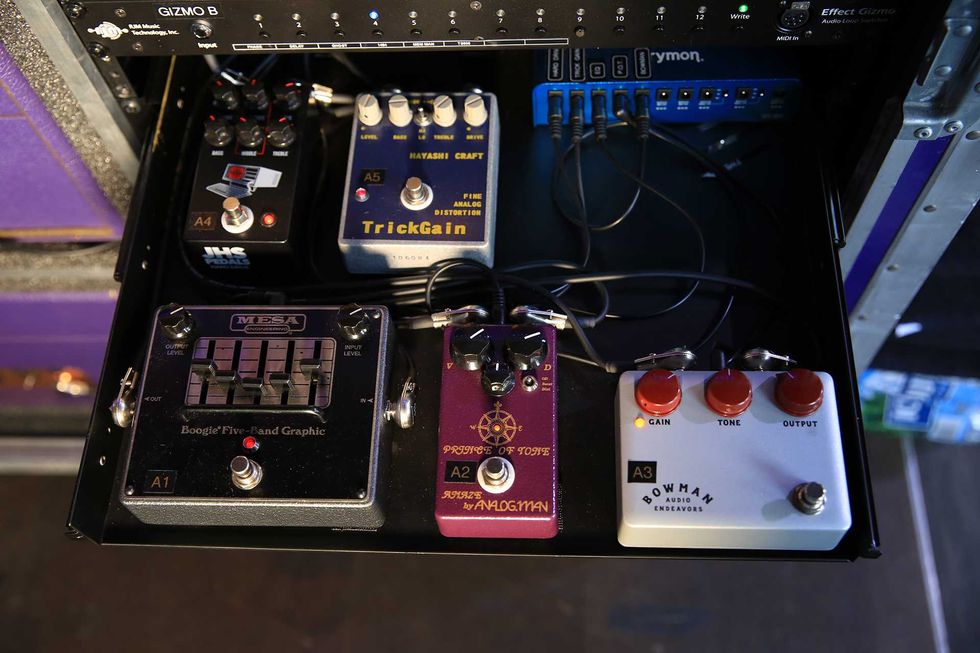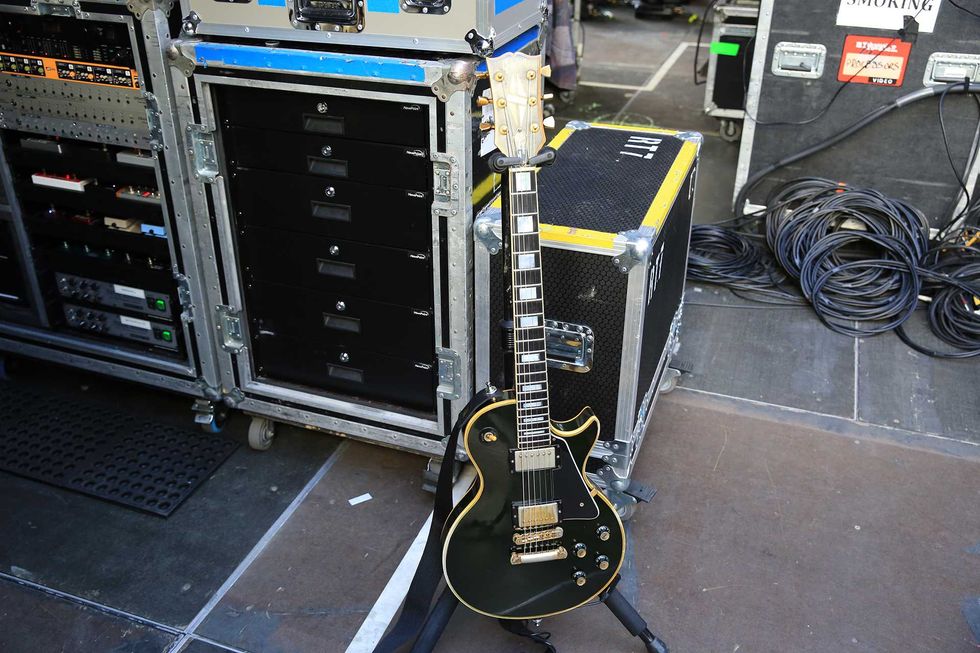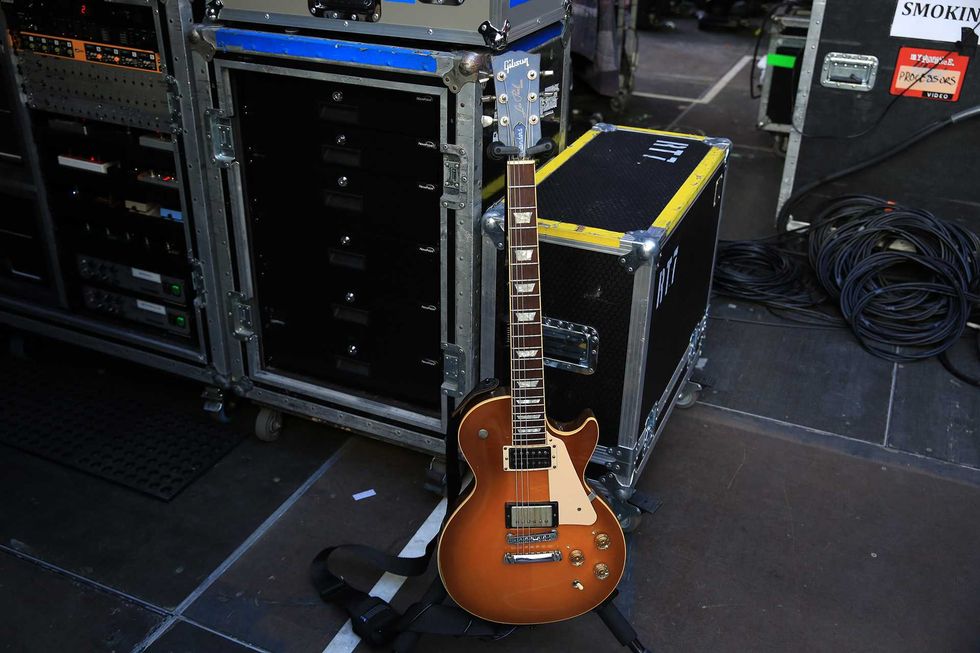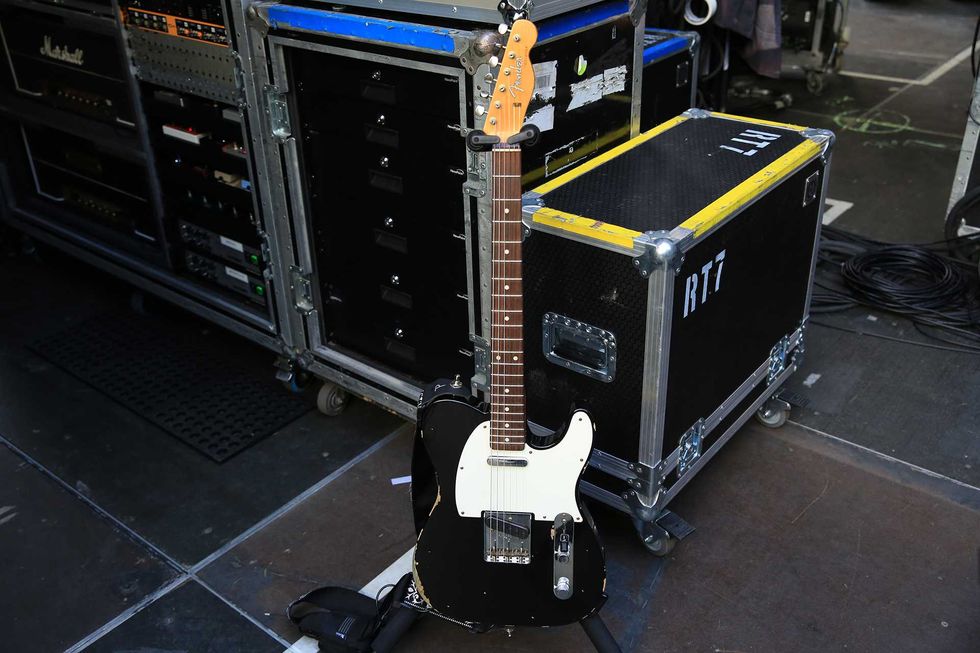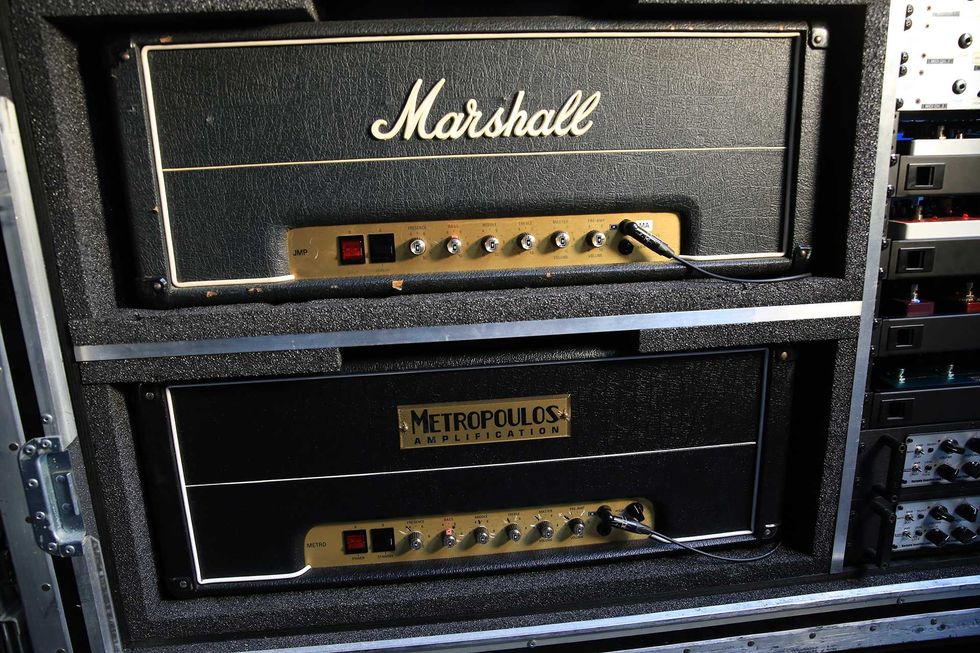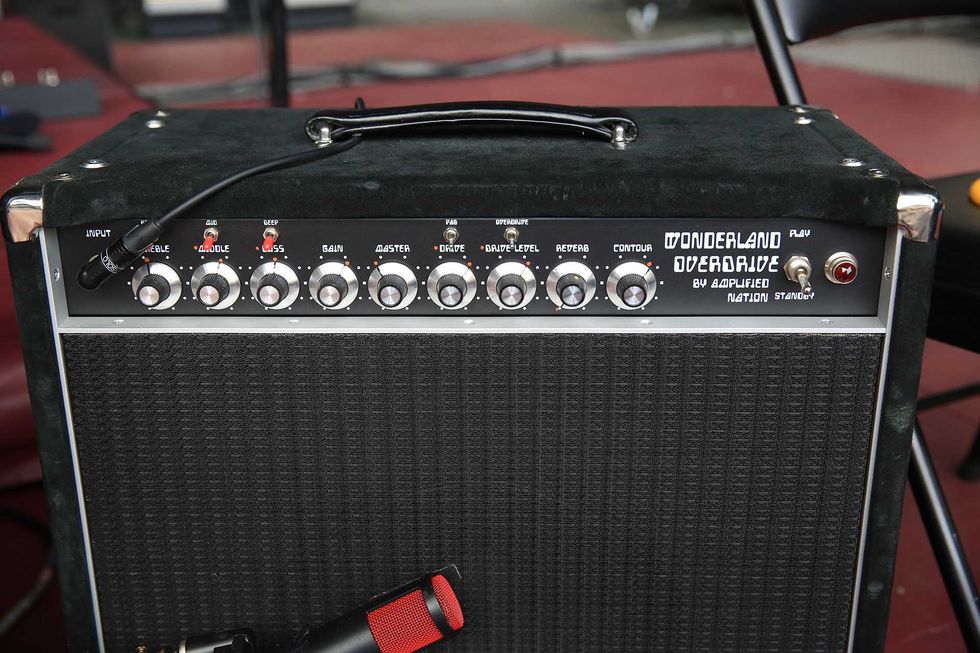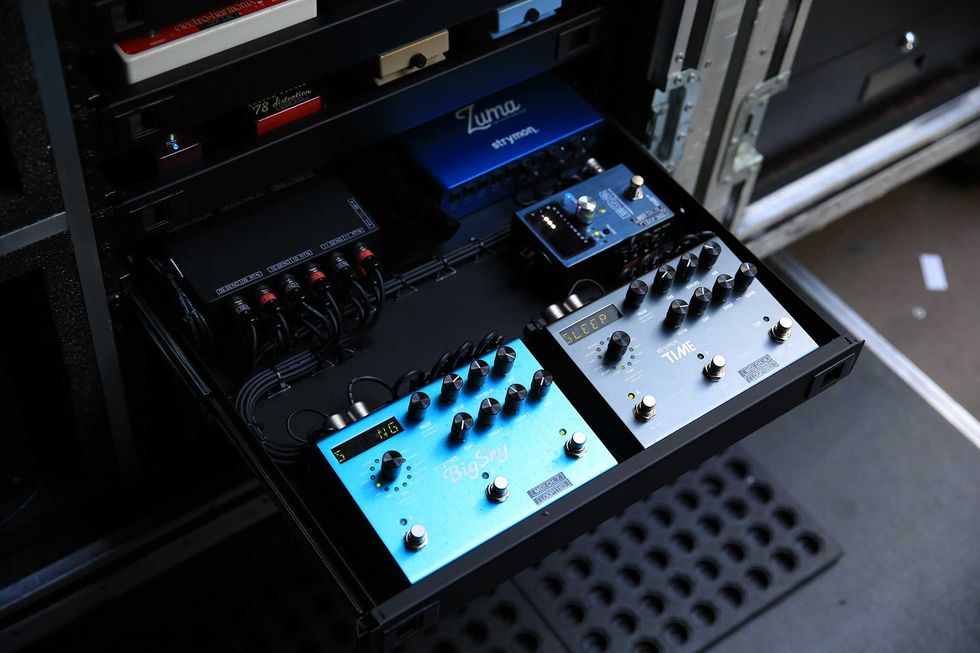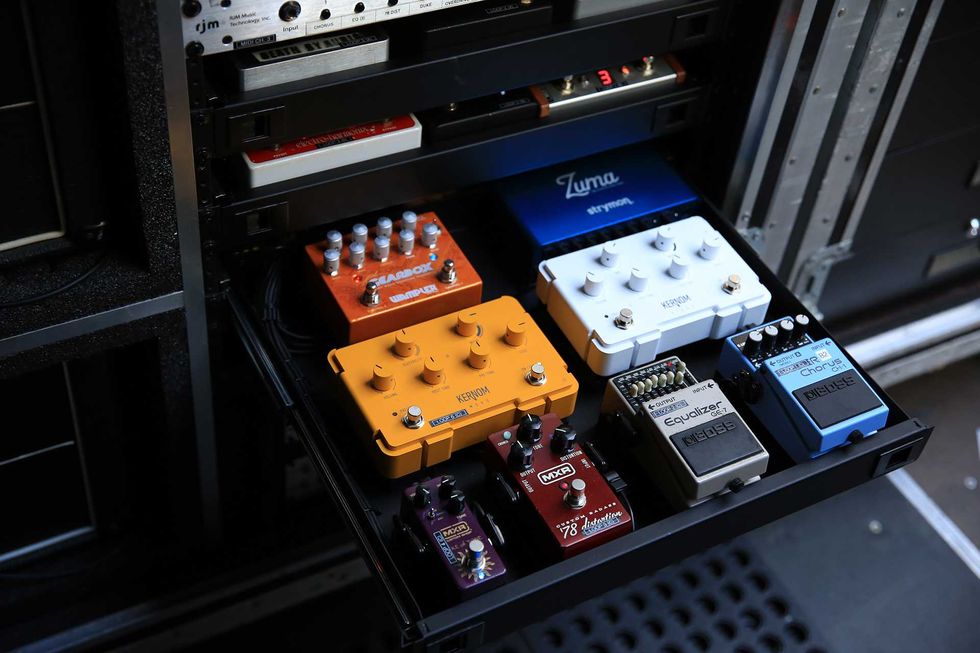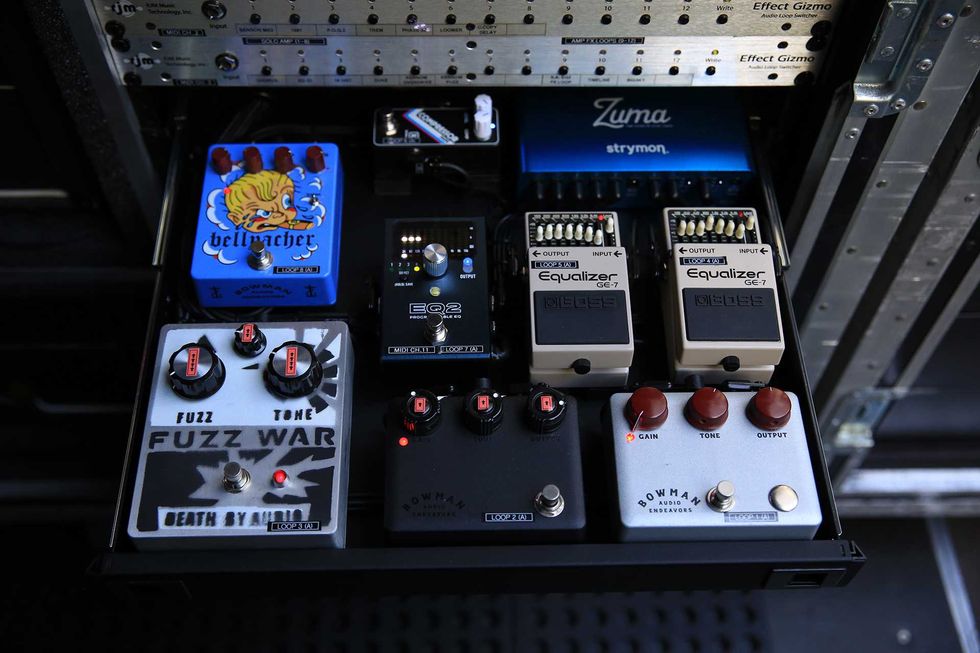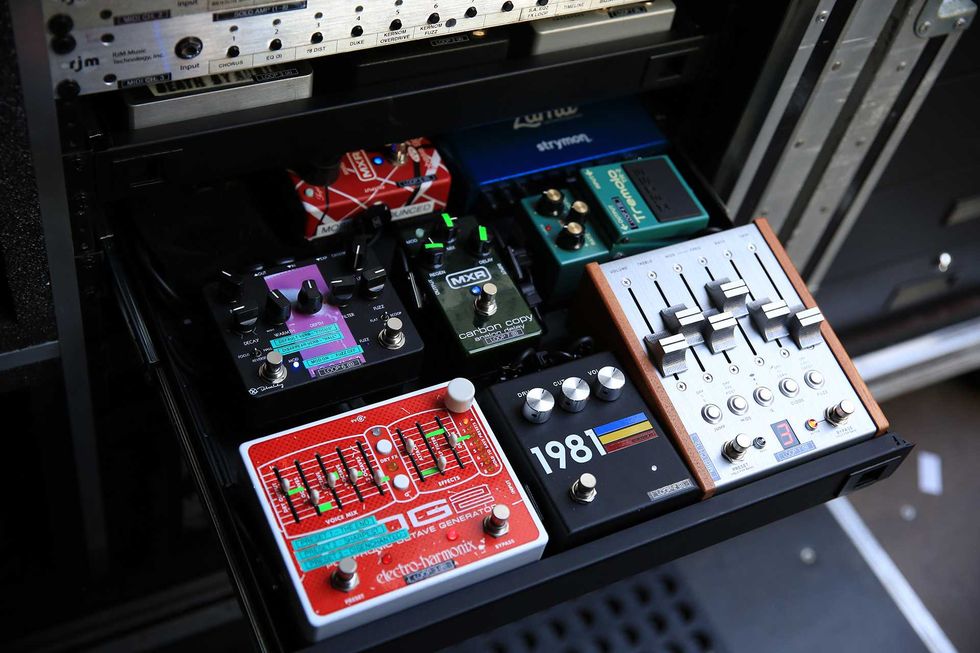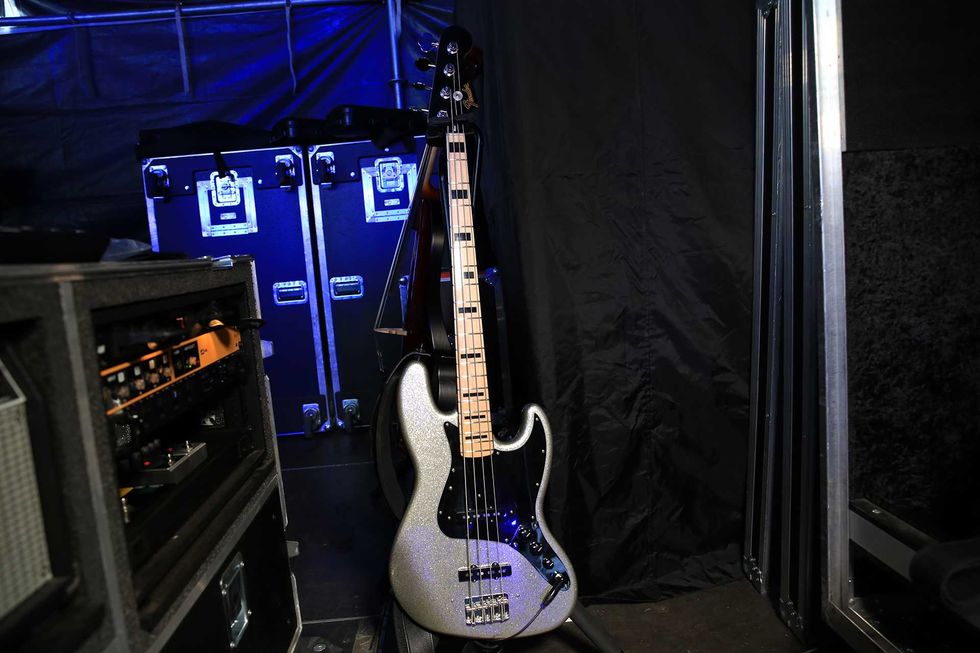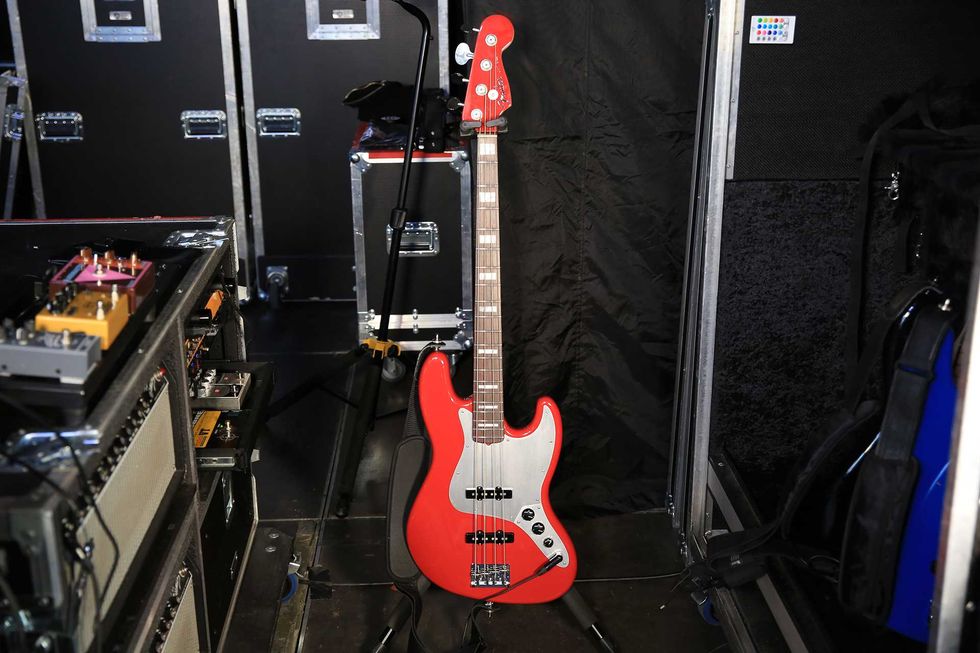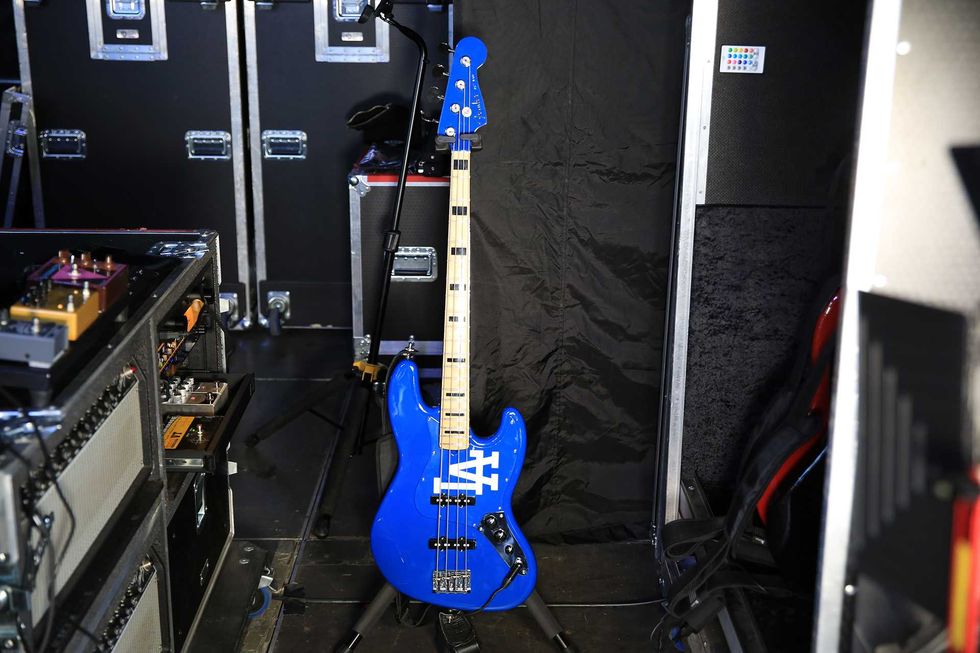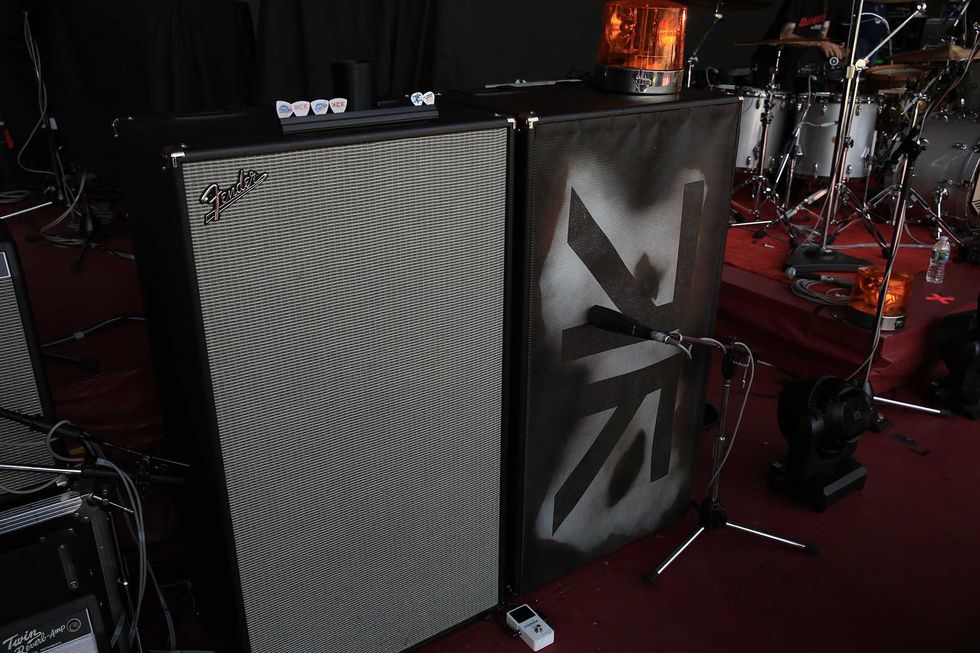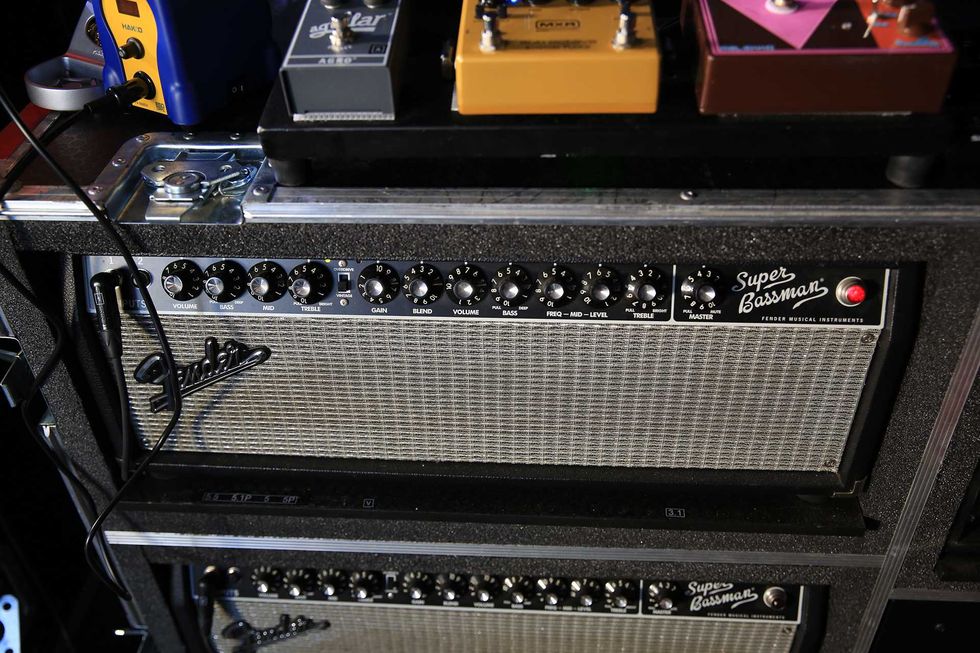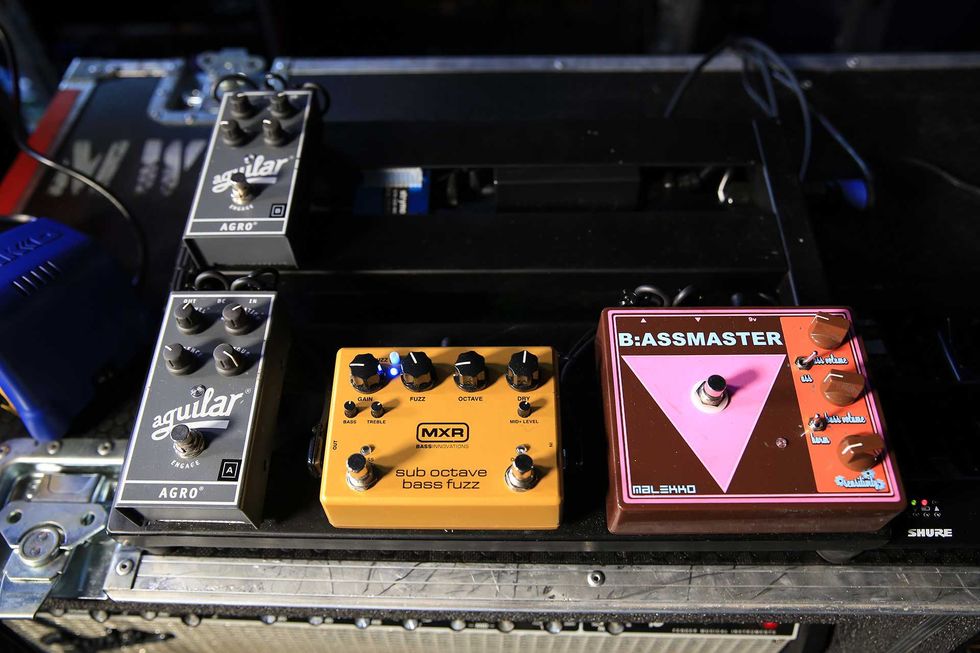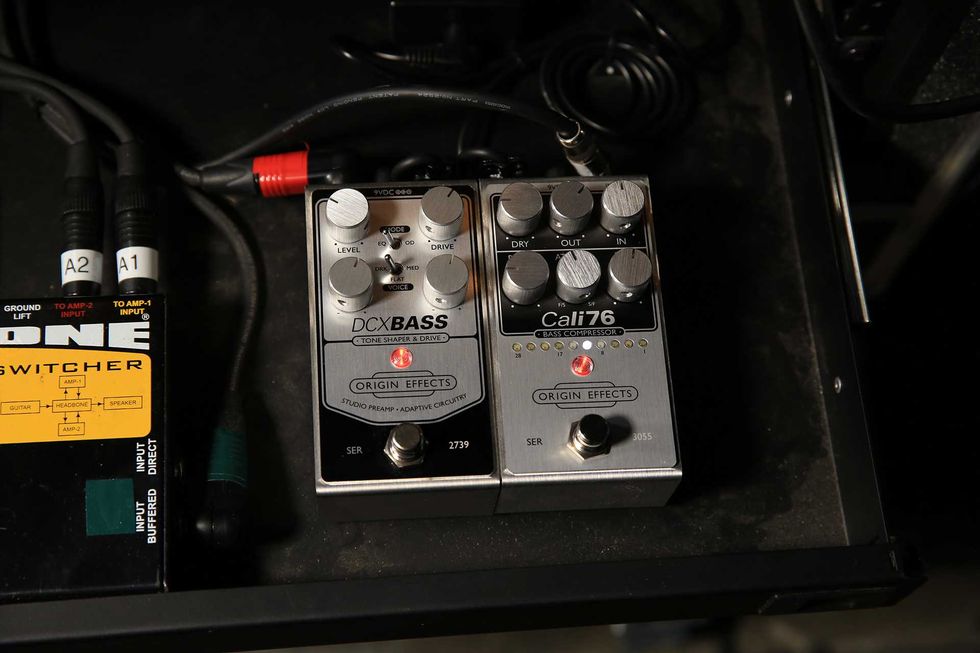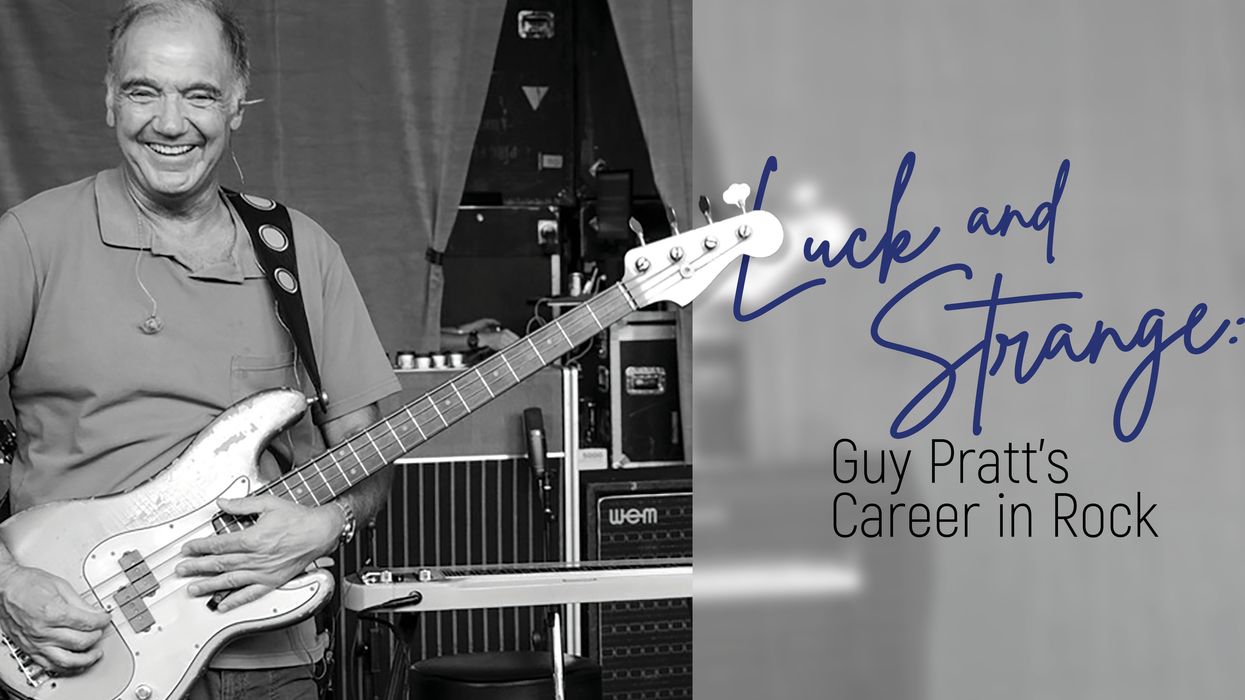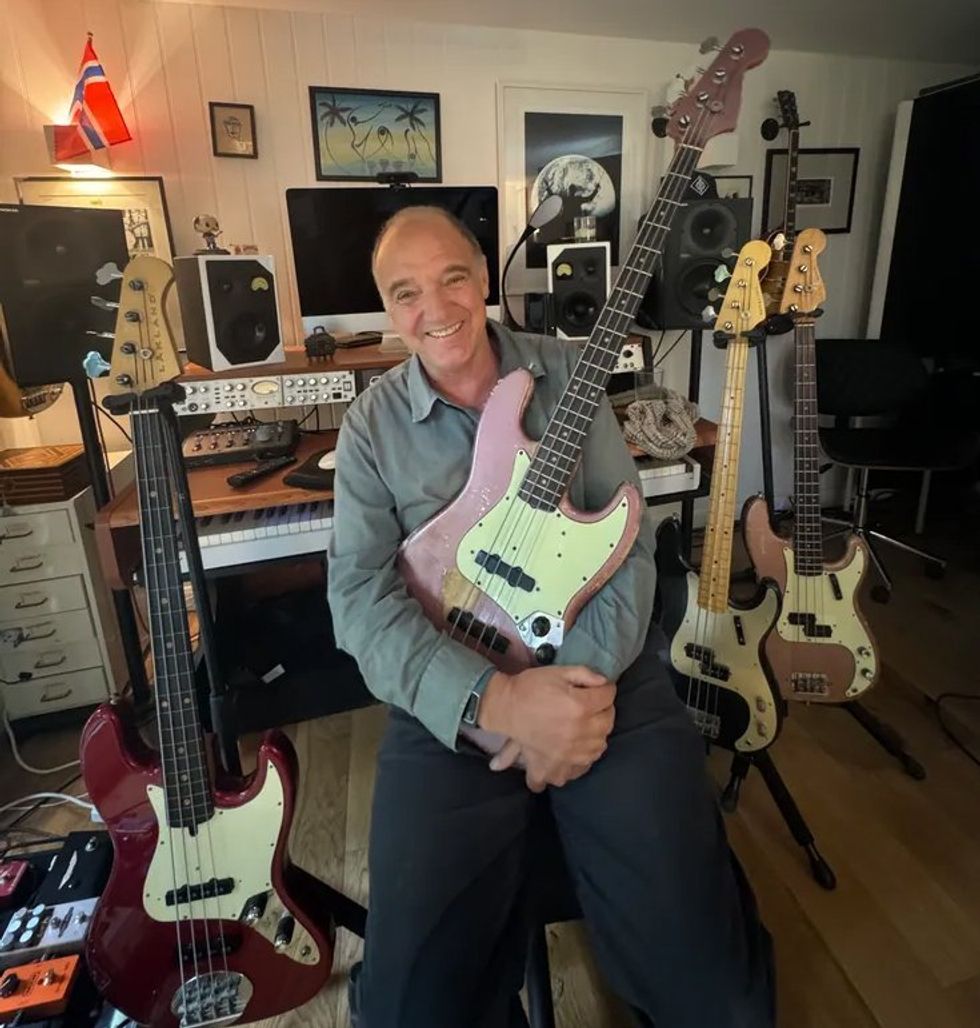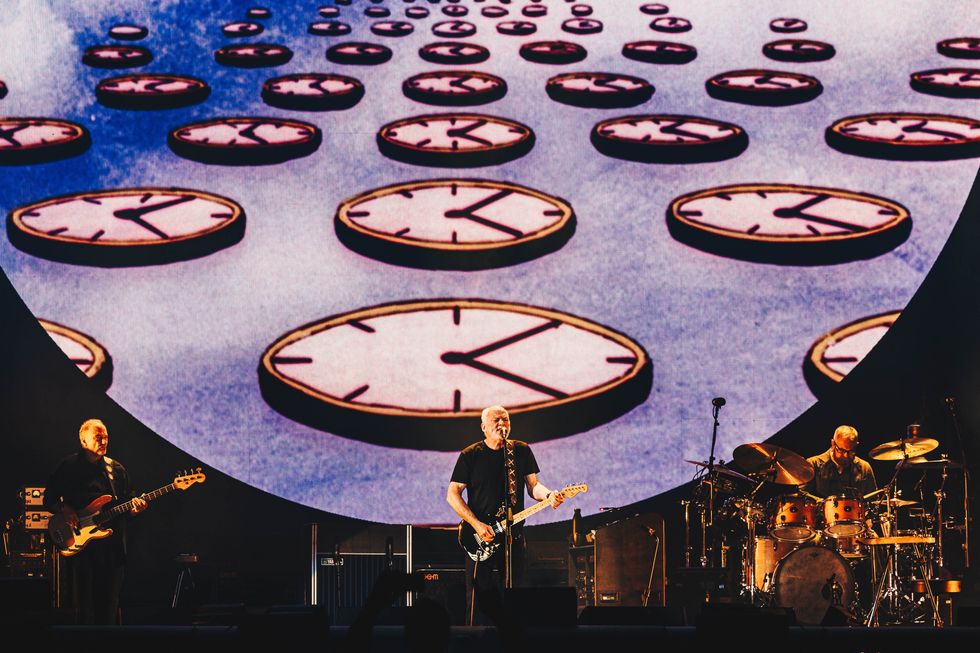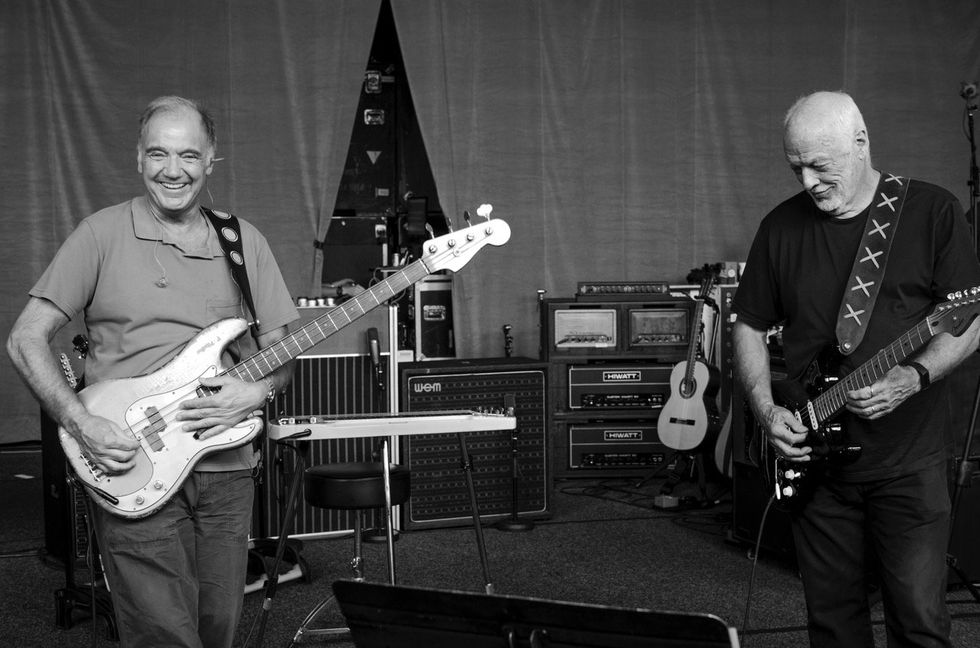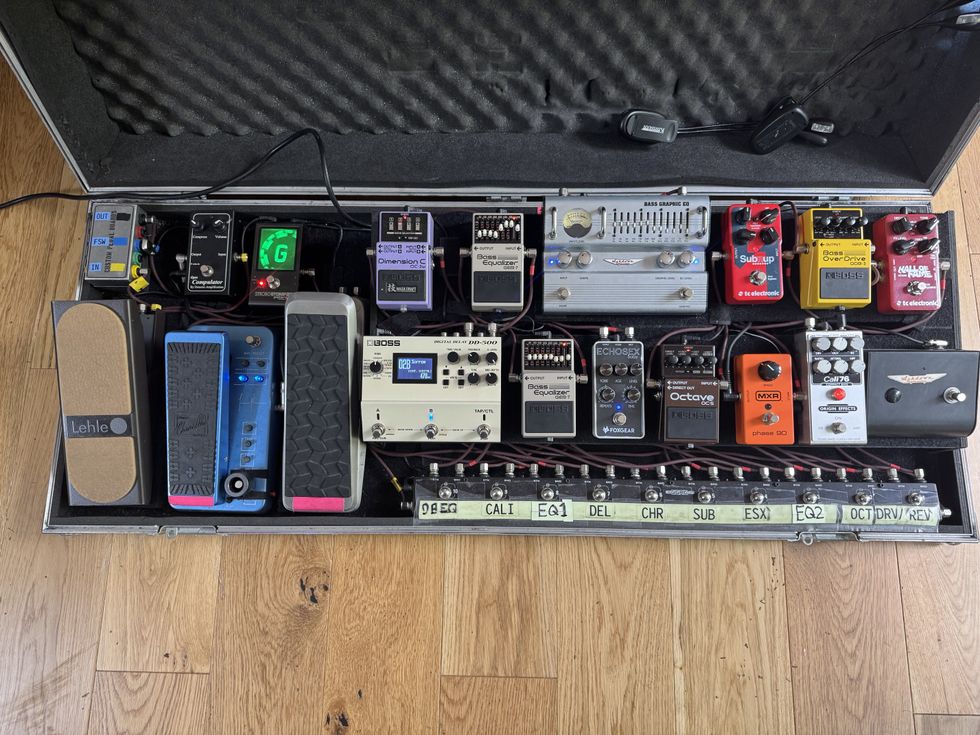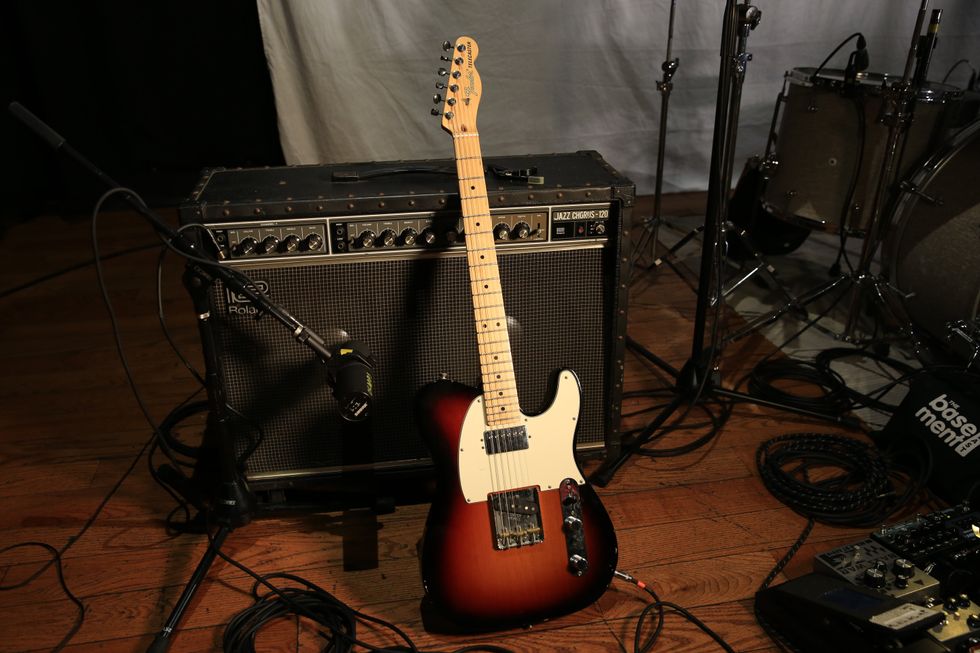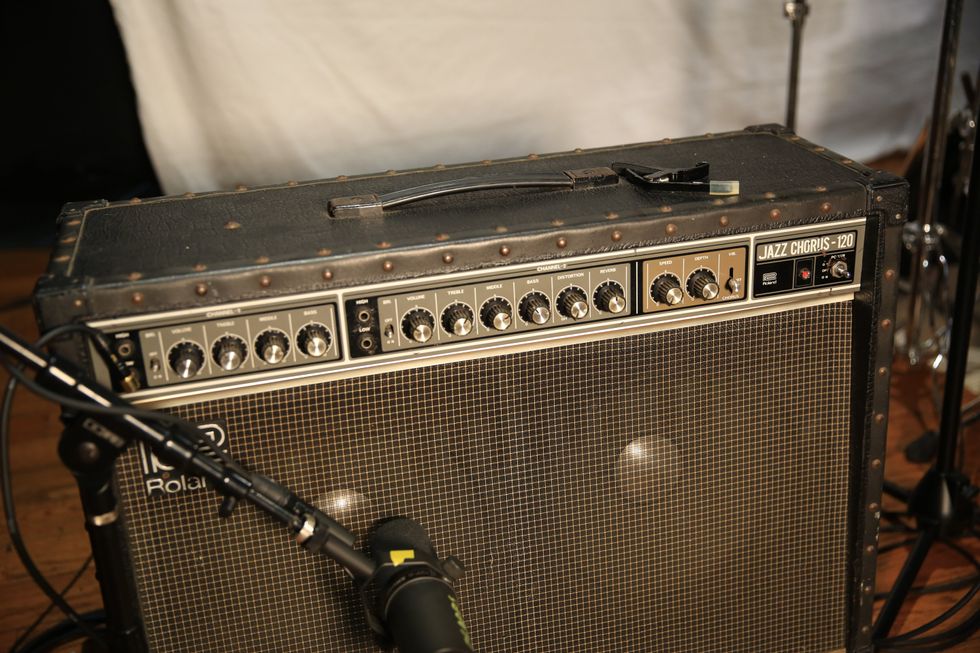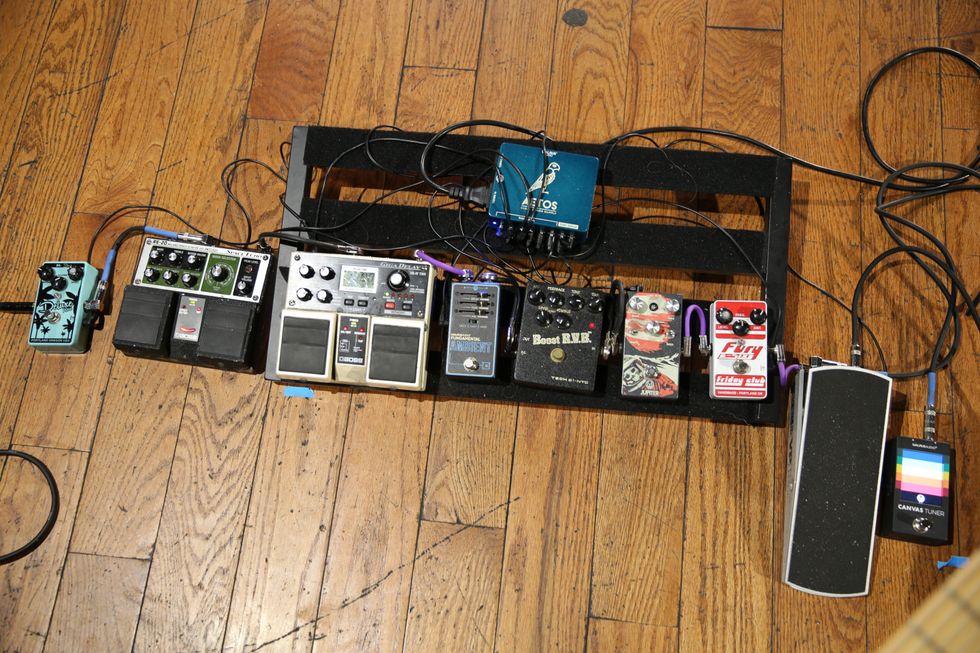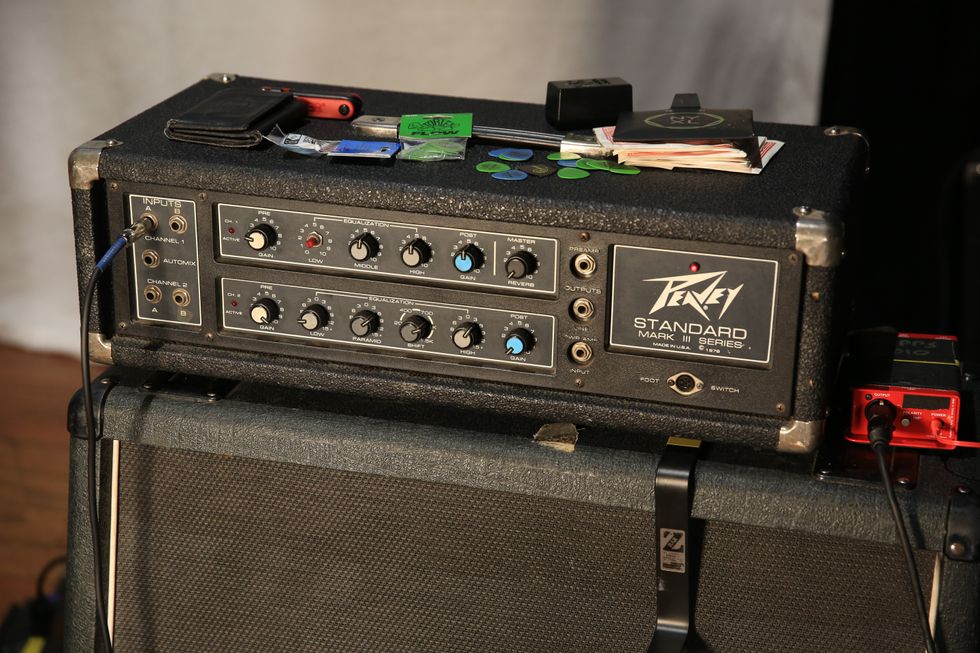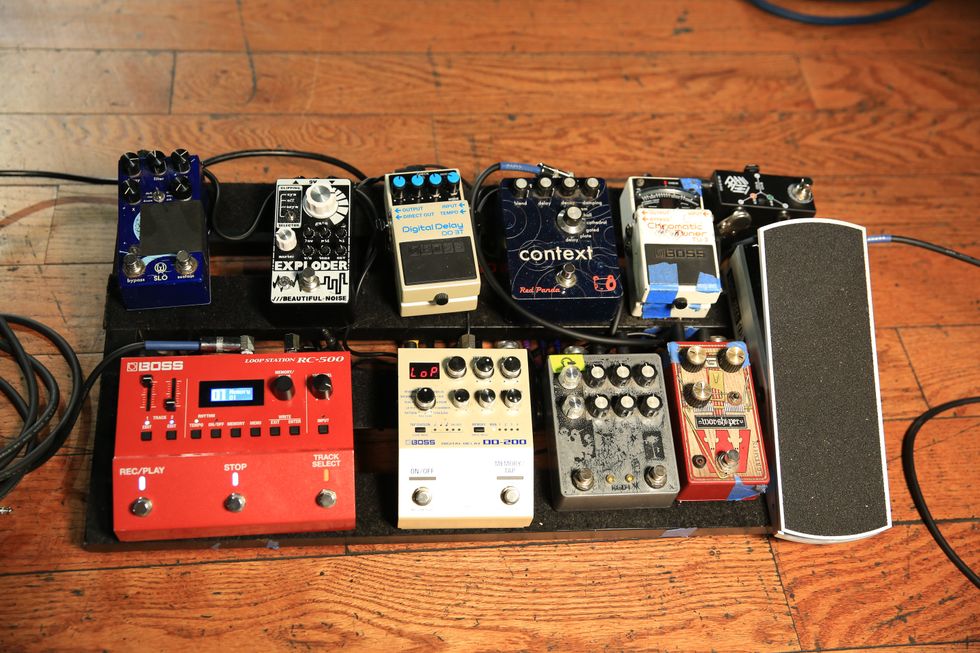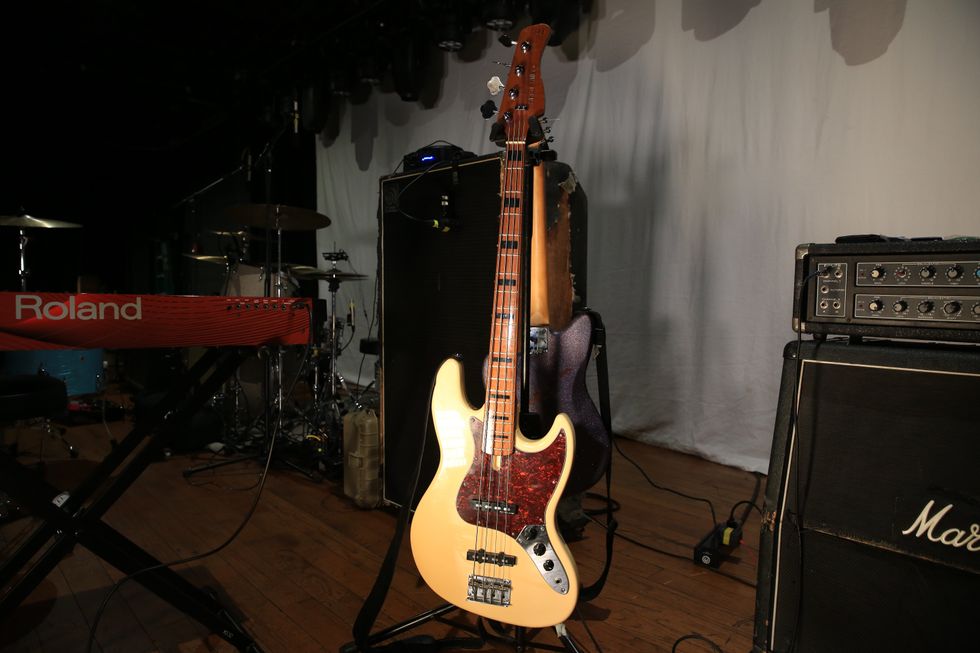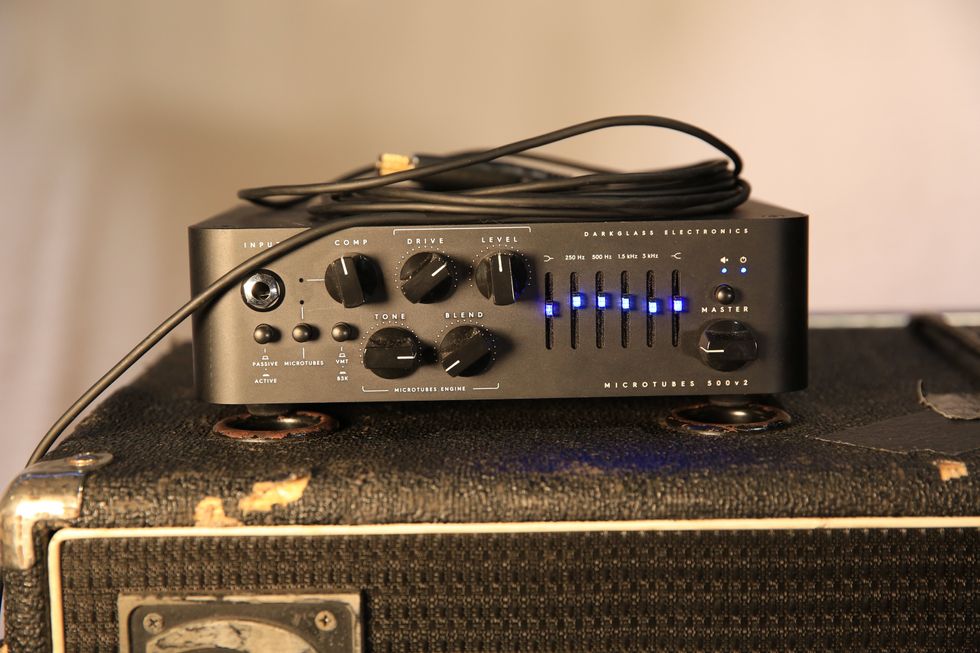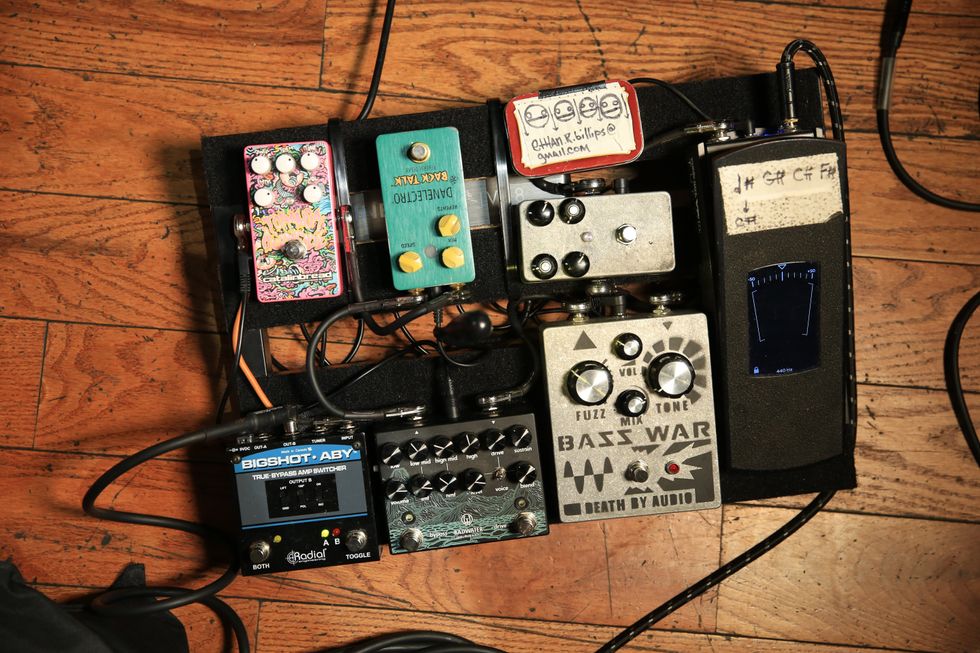Clip 1 - Neck pickup only. Bass and treble dials at 75 percent.
Clip 2 - Bridge pickup only. Bass and treble dials at 75 percent.
Clip 3 - Both pickups engaged. Bass and treble dials at 75 percent.
Lower-cost instruments are, of course, nothing new, and the old adage of “you get what you pay for” used to ring volumes when one would see a budget-friendly price tag on a bass or guitar. But lately it seems that a number of companies have started to figure out a different formula (great design + quality components + lower profit margins = dependable, lower-cost instruments) and pass it on to us consumers. I remember paying $400 in 1987 money for a not-so-great production instrument, only to trade it later because it was a budget model that didn’t grow with me as a player. Wouldn’t it be nice to spend less than $500 on a well-designed bass that feels at home as a first bass or a go-to instrument as well? Allen Eden Guitars thinks so, and does so with the 34"-scale Disciple 5 bass.
Picked from the Garden
Our test bass arrived in its included hardshell case, and when I performed the grand reveal, I was taken aback. There were a number of things that hit me right away, such as the beautiful honeyburst finish, the clear pickguard (don’t hide that pretty paint!), the maple neck, and the matching headstock. It was the kind of initial aesthetic impression I’d expect from a bass four times its price, because at first glance it looked every bit the part of a small-batch offering from a custom luthier.
One of the cooler factors is the color of the finish, which is applied to a quilted-maple veneer that tops the alder body. (The bass is also available in a 3-tone sunburst.) The abalone dot inlays are also a pro touch, the joints seemed matched up and tight, and the overall construction appeared to be well done. The lone exception was the input-jack plate, which left a small gap because it didn’t quite sit flush with the body.
The company’s site maintains that every bass coming in from China is set up prior to shipping, but a few small truss-rod turns were needed. A little “transit tweaking” isn’t unusual, so I wasn’t too disappointed, especially given that the action on the satin-finished, C-shaped neck felt wicked fast. Unplugged, the Disciple resonated loud and true, but I noticed there were a couple of frets on the floor side of the neck that creeped out just a touch, so maybe a full setup on this particular bass would be in order. The aforementioned frets didn’t effect my playing at all, however, and I was anxious to hear the bass plugged in.
Ratings
Pros:
Well made. Impressive tones. Loads of value.
Cons:
Minor fretwork issue. Input jack in need of a reset.
Tones:
Playability:
Build/Design:
Value:
Street:
$469
Allen Eden Guitars Disciple 5
allenedenguitars.com
Discipline Is Key
Pairing the Disciple 5 with an Aguilar Tone Hammer 350 and a single 1x10 cab, I was able to dial it in pretty easily. The bass houses an onboard active Artec pre, which gives added tonal flexibility to the Jazz-style, passive pickups from Artec. The control set consists of knobs for volume, pickup blend, and a pair of boost/cut dials for the treble and bass.
Starting with the controls in their center positions (no cut or boost on the EQ), the tone was decent, but in need of the EQ from the onboard pre. Once I rolled both the treble and bass dials up to about 75 percent, the Disciple really came alive. Pushing the bass to the max with both pickups engaged and keeping the treble at 75 percent gave me a bright, lively tone with plenty of great slap feel—perfect for really punchy fingerstyle runs. And the 5th string felt nice and tight when I pushed the bass in a different direction with a fat 1.0 mm pick. So far, the Disciple’s modern tones sounded respectable, solid, and applicable for a number of musical styles.
The bridge pickup on its own was a little thin and definitely needed the assistance of the preamp EQ. Again diming the bass control and setting the treble at about 75 percent, a nice, precise tone popped out, and my quick runs, double stops, and chords all sang. When I rolled the blend to solo the neck pickup and kept the EQ settings the same, the sound got much bigger. This was a setting I could use all night, as it lent itself to a firm rock tone. My slap tone was also more robust and favorable here—especially with the 5th string. Considering the instrument’s impressive amount of punchiness and presence as well, the Disciple lines up very nicely with the many other J-style instruments I’ve had my hands on.
The Verdict
At a time when we all want our gear dollars to stretch a little further, the Allen Eden Disciple comes calling to help the working player get into a well-designed bass guitar for a reasonable price. Given that the wage for a bar gig has seemed to hover around the $100-per-player rate for decades, yet the price of gear continues to go up, the Disciple’s wallet-friendly price south of $500 should put some smiles on faces. I appreciated the solid feel of the instrument, which goes way beyond the sticker price. Yes, there were a couple of minor QC issues, but nothing that an experienced tech couldn’t easily tweak. Even with that sort of added expense, the Disciple is still a fine bass and a bargain, and certainly deserving of a solid look-see.
Watch the Review Demo:




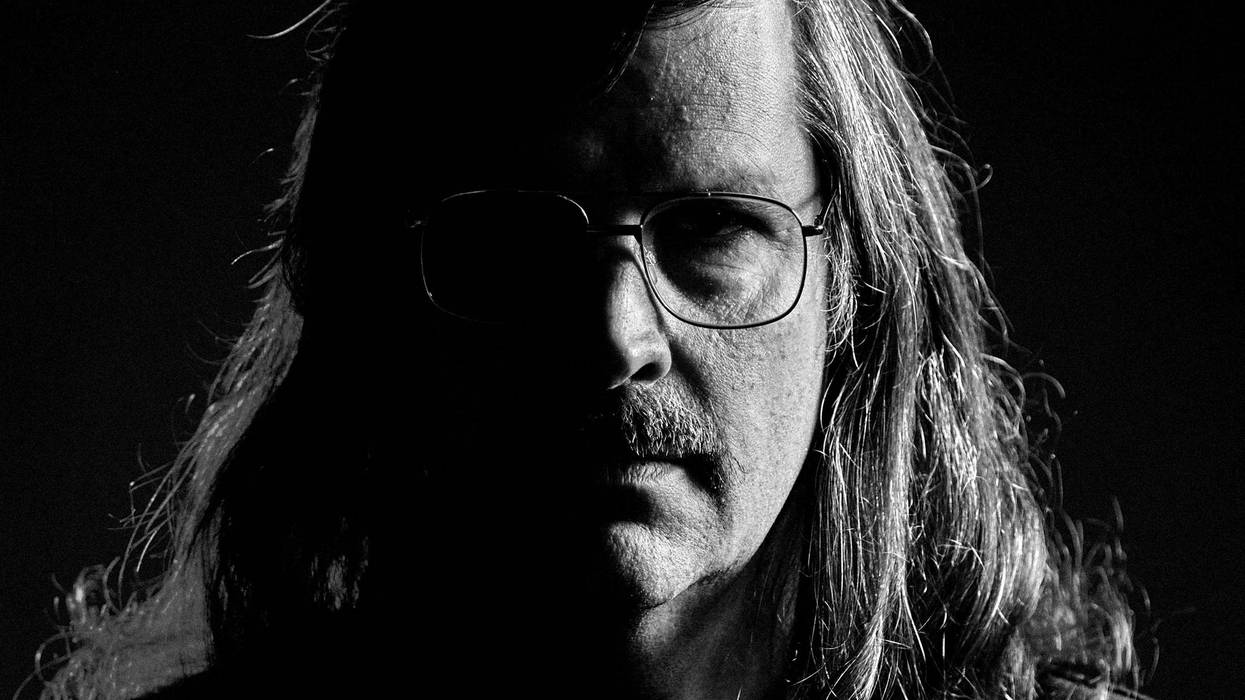
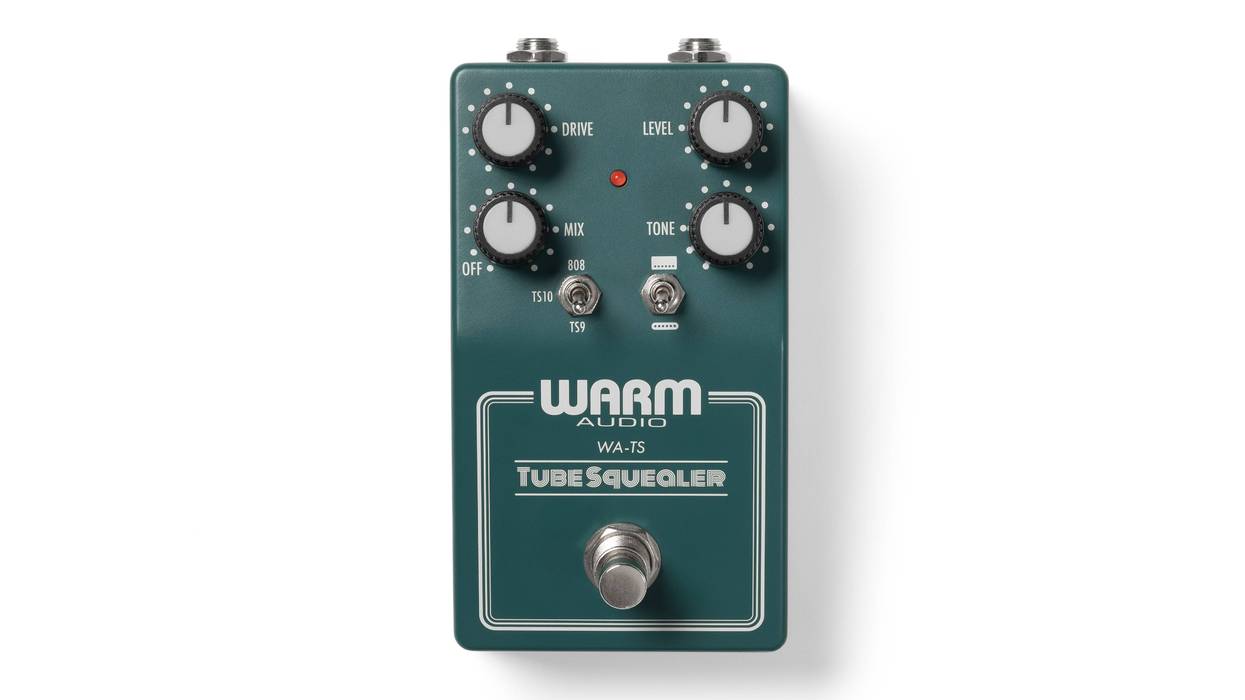
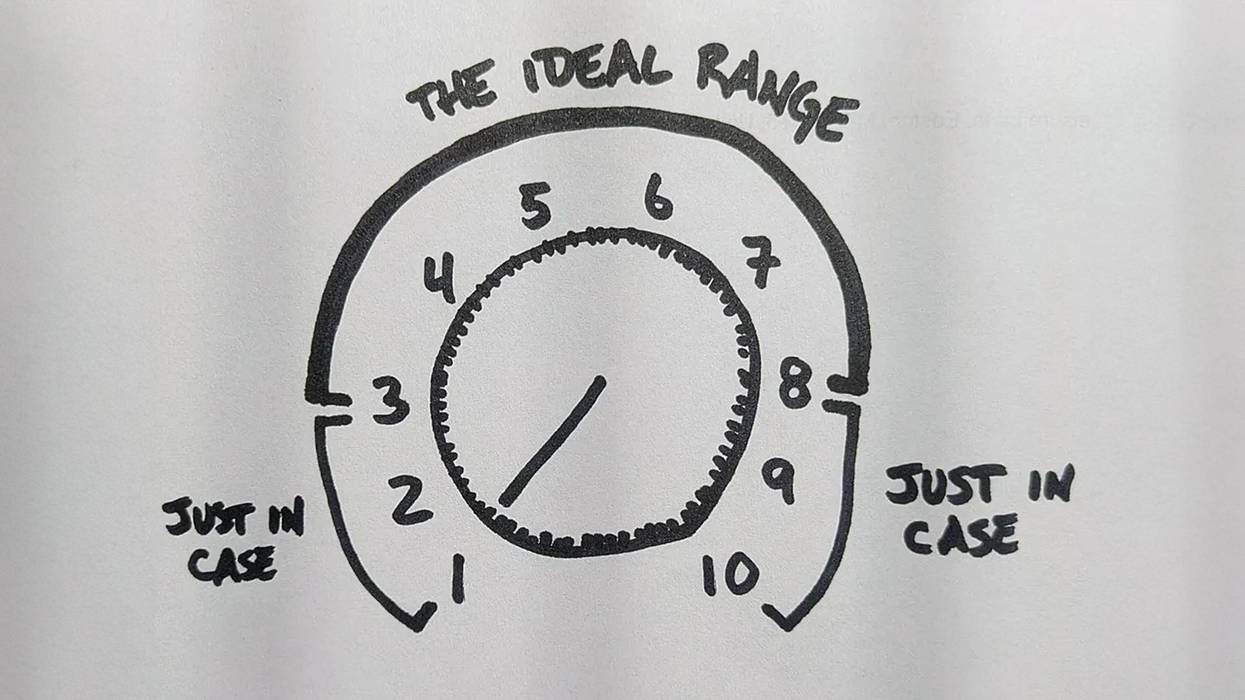
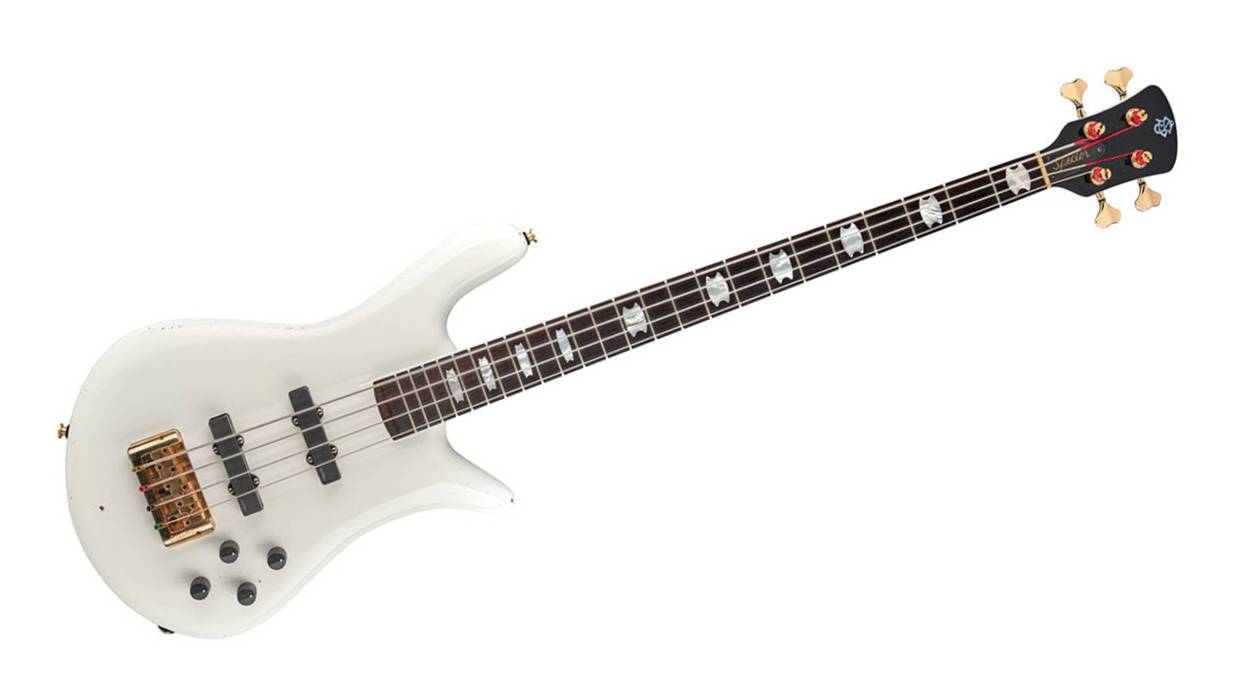
![Rig Rundown: AFI [2025]](https://www.premierguitar.com/media-library/youtube.jpg?id=62064741&width=1245&height=700&quality=70&coordinates=0%2C0%2C0%2C0)












 Shop Scott's Rig
Shop Scott's Rig